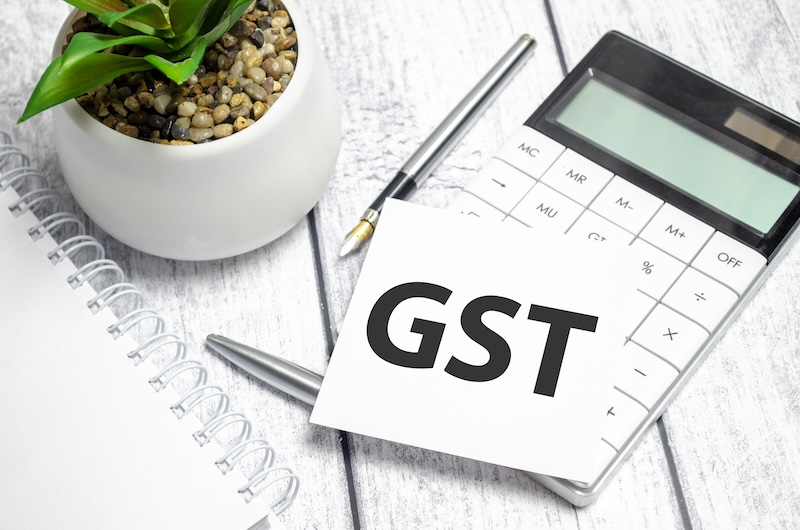
Exploring Goods and Services Tax (GST) in Singapore: Compliance and Implications for Businesses
The Goods and Services Tax (GST) in Singapore is a crucial element of the country’s tax system, affecting both consumers and businesses. As a value-added tax levied on the import of goods, as well as almost all supplies of goods and services in Singapore, understanding GST is essential for businesses operating in or with Singapore. Proper accounting and taxation practices play a vital role in managing GST effectively. This blog explores the intricacies of GST in Singapore, focusing on compliance requirements and the broader implications for businesses.
Understanding GST in Singapore
GST in Singapore was introduced on April 1, 1994, with an initial rate of 3%. Over the years, this rate has been adjusted, with the current rate set at 9% as of January 2024. The tax is designed to be borne by the end consumer, with businesses acting as intermediaries that collect and remit the tax to the Inland Revenue Authority of Singapore (IRAS).
Key Features of Singapore’s GST
Broad-based Tax:
GST applies to most goods and services, making it a broad-based tax. This includes both local and imported goods and services, ensuring a wide tax base.
Multi-stage Tax:
GST is levied at every stage of the supply chain, from production to the final sale. However, businesses can claim credits for GST paid on their purchases, mitigating the tax’s impact on business costs.
Export Exemption:
Goods and services exported from Singapore are zero-rated, meaning they are subject to a 0% GST rate. This encourages international trade by making Singaporean exports more competitive.
Compliance Requirements for Businesses
Compliance with GST regulations is a critical aspect of operating in Singapore. Ensuring adherence to these requirements is essential for avoiding penalties and maintaining smooth business operations. Here are the key compliance requirements for businesses:
Registration
- Mandatory Registration: Businesses with an annual taxable turnover exceeding SGD 1 million must register for GST. This threshold applies to the total value of taxable supplies made in a 12-month period.
- Voluntary Registration: Businesses below the SGD 1 million threshold can opt to register voluntarily if they meet certain conditions, such as intending to make taxable supplies. Voluntary registration can be beneficial for businesses that wish to claim input tax credits on their purchases.
- Registration Process: The registration process involves submitting an application to the Inland Revenue Authority of Singapore (IRAS). Businesses need to provide details such as their business activity, taxable turnover, and anticipated sales. The approval process typically takes about 10 working days.
Filing Returns
- Quarterly Filing: Registered businesses must file GST returns on a quarterly basis. The filing frequency can sometimes be adjusted to monthly or half-yearly, depending on the business’s specific circumstances.
- Form GST F5: This is the standard return form that businesses must submit. It requires detailed information on the GST collected from sales (output tax) and the GST paid on purchases (input tax).
- Payment and Refunds: Businesses must pay any net GST due to IRAS by the filing deadline. Conversely, if the input tax exceeds the output tax, businesses can claim a refund. The typical deadline for filing and payment is one month after the end of the accounting period.
Issuing Tax Invoices
- Requirements for Tax Invoices: Businesses must issue tax invoices for taxable supplies. A tax invoice must include specific details such as the invoice date, supplier’s name and GST registration number, description of goods or services, amount payable excluding GST, GST rate, and total GST amount.
- Simplified Tax Invoices: For transactions below SGD 1,000, businesses can issue simplified tax invoices, which require fewer details but must still include essential information such as the supplier’s name and GST registration number, invoice date, and the total amount payable including GST.
- Importance for Claims: Issuing accurate tax invoices is crucial as customers need them to claim their input tax credits. Errors or omissions in tax invoices can delay claims and disrupt business relationships.
Record Keeping
- Transaction Records: Businesses must maintain comprehensive records of all transactions, including sales, purchases, imports, and exports. These records should detail the nature of the transaction, the parties involved, and the amounts.
- Retention Period: Records must be kept for at least five years from the end of the accounting period in which the transactions were made. This requirement ensures that records are available for review if requested by IRAS.
- Accessibility and Format: Records must be readily accessible and maintained in a format that allows for easy retrieval and inspection. Digital records are acceptable as long as they meet these criteria.
Accounting for GST
- Categorization of Transactions: Proper accounting for GST involves accurately categorizing transactions as taxable, exempt, or zero-rated. This ensures the correct application of GST rates and proper reporting.
- GST on Imports: For imported goods, businesses must account for GST through the import GST scheme. This involves paying GST at the point of import and subsequently claiming it as input tax, subject to certain conditions.
- Timely Payments and Claims: Ensuring timely payment of GST and claiming of input tax credits is essential for maintaining cash flow and compliance. Late payments can attract penalties and interest charges, while delayed claims can affect business liquidity.
- Adjustments and Corrections: Businesses must promptly adjust and correct any errors in their GST returns. This includes under-declarations or over-declarations of GST, which need to be rectified in subsequent returns to avoid penalties.
Implications for Businesses
Compliance with GST regulations has several implications for businesses in Singapore:
Cash Flow Management:
GST impacts cash flow as businesses need to pay GST on their purchases upfront and collect it on sales. Efficient cash flow management is essential to avoid liquidity issues.
Pricing Strategies:
Businesses need to incorporate GST into their pricing strategies. This involves deciding whether to absorb the GST cost or pass it on to consumers.
Competitive Advantage:
For export-oriented businesses, the zero-rating of exports can be a significant advantage, reducing the overall tax burden and enhancing competitiveness in international markets.
Administrative Overhead:
Compliance with GST regulations requires robust administrative systems. Businesses need to invest in accounting software and staff training to manage GST effectively.
Risk of Penalties:
Non-compliance with GST regulations can result in penalties, including fines and interest on unpaid GST. Businesses must stay updated with regulatory changes to avoid such risks.
Conclusion
The Goods and Services Tax in Singapore is a vital component of the country’s tax system, influencing business operations significantly. Compliance with GST regulations is mandatory for eligible businesses and requires careful attention to detail and robust administrative processes. While GST poses certain challenges, such as impacting cash flow and necessitating precise record-keeping, it also offers benefits like zero-rating for exports, which can enhance a business’s competitiveness in the global market.
Understanding and managing GST effectively is crucial for business success in Singapore. By staying informed about regulatory requirements and implementing efficient compliance strategies, businesses can navigate the complexities of GST and leverage its features to their advantage.
Engaging a corporate service provider can be immensely beneficial in this regard. These providers offer expertise in GST compliance, helping businesses with registration, filing returns, accurate record-keeping, and staying abreast of regulatory changes. This support allows businesses to focus on their core activities while ensuring that their GST obligations are met efficiently and accurately.
Ready to Take Your Business to the Next Level?
Whatever your query or requirement, we’re here to help. Contact CS Supreme today to discuss how we can support your business needs.

Our Services
Quick Links
- About Us
- Contact Us
- Privacy Policy
Get in touch
152 Beach Road, #23-01, Gateway East, Singapore 189721
Copyright © 2024 CS Supreme Pte Ltd. All rights reserved.


